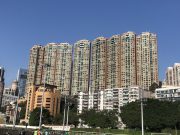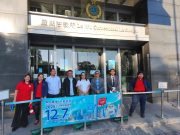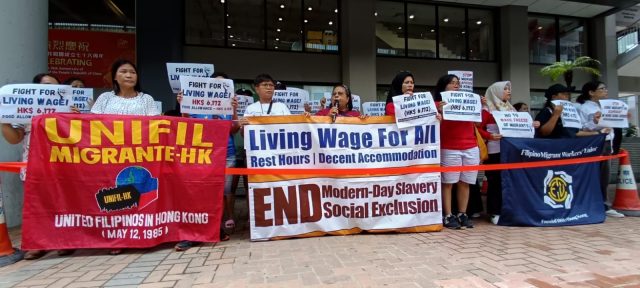A leading coalition of migrant domestic workers in Hong Kong voiced mixed feelings Monday over the government’s decision to raise the minimum monthly wage for foreign helpers to 5,100 Hong Kong dollars ($655), calling it a step forward but far short of the “living wage” needed to combat poverty and inflation.
The Asian Migrants Coordinating Body (AMCB-IMA), the largest alliance of migrant domestic worker associations and unions in the city, credited the increase — and previous ones — to years of relentless advocacy by worker groups. But in a statement, the coalition said the new rate falls well below its demand for a minimum of 6,172 Hong Kong dollars ($793), which it described as essential for decent living standards.
“The call for a living wage is not just simply a wage increase; it is a demand against slave wages and to provide decent living not only for the MDWs but for all HK workers, who are also MDWs employers,” the group said, using an acronym for migrant domestic workers. It urged the Hong Kong government to tackle the city’s economic challenges and rising inflation directly, rather than shifting the burden onto low-paid migrants.
The wage adjustment, announced by the Labour Department, takes effect next month and applies to the roughly 340,000 foreign domestic workers in Hong Kong, mostly from the Philippines and Indonesia, who perform essential household tasks for many families.
AMCB-IMA sharply criticized the department’s choice to keep the food allowance unchanged at its current level, which the group called “seriously unhealthy and insufficient” amid surging food prices. “Such a move will leave many MDWs to struggle with whatever little finances they have in order to afford decent meals every day,” the statement said.
The coalition emphasized that migrant workers deserve fair treatment, equal rights and access to services, rejecting portrayals by some anti-migrant groups that depict them as undeserving of raises or worthy of wage freezes. “MDWs are workers who, like every working person, deserve to be treated fairly, equally and justly,” it said. “They are people with human rights, not slaves, criminals or undesirables.”
Looking ahead, AMCB-IMA reiterated the need for collective actions to push for a living wage across all sectors, including local and migrant workers. The group pledged to continue its campaigns for better working and living conditions, as well as fair treatment for everyone in Hong Kong’s labor force.
Hong Kong’s economy has faced headwinds from post-pandemic recovery, geopolitical tensions and a property market slump, contributing to inflationary pressures that have hit low-income groups hardest. Migrant domestic workers, who often send remittances home, have long campaigned for reforms to address exploitative conditions, including long hours and live-in requirements.












